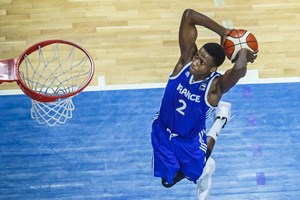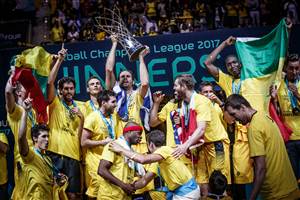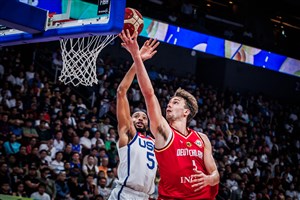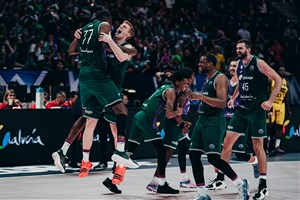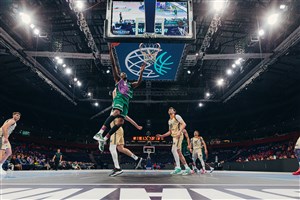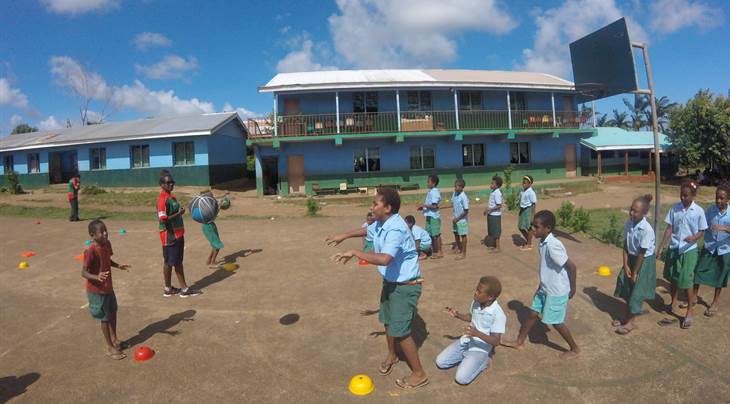
The right people are getting together
MELBOURNE (Paulo Kennedy's View from Downunder) - The term 'generation next' gets thrown around a bit these days, but as we've seen in Oceania the past few weeks, it can have very different meanings in basketball terms.
Take the Basketball '+' program FIBA is running in five countries in Oceania and Asia - in partnership with the Australian government - which is about hoops on the surface but is as much about developing more capable communities when you dig a bit deeper.
The program in Fiji has reached almost 25,000 people in less than two years, in the form of the 'Hoops for Health' and 'Mum's a Hero' initiatives, which look at decreasing the spread of disease, and increasing participation in sport and knowledge of healthy lifestyles amongst women.
The program is also in in Papua New Guinea, where it has already reached more than 3000 people in its first few months. Joel Khalu, CEO of the country's basketball federation, summed it up pretty well.
"It's about much more than just promoting basketball," he said. "It is about utilising the sport to make a positive impact on the community. We're creating an avenue for kids to get off the streets and into a positive environment, where they can play sport for free and get educated on various ways to live happier and healthier lives."
The other end of the generation's next spectrum was on show in Melbourne this week when the NBL teamed up with Basketball Australia, the Centre of Excellence, the Australian Players Association and Patrick Hunt, president of the FIBA World Association of Basketball Coaches to run an NBL Combine.
"Patrick is a highly-respected figure in the world of basketball and we are very excited to have him running the NBL Combine," said general manager Jeremy Loeliger before the camp. "His international status in the game aligns with the NBL’s vision, which is to establish the Combine as an elite pathway for young players into a professional career."
Some 80 players took part in the Combine, including some of the country’s best young players from the CoE and our national junior teams, some budding US imports and four players from India, including national team star Amritpal Singh, who made quite an impression with his length, athleticism and soft touch.
Indian Amritpal Singh (77) impressed at @NBL Combine in Melbourne. 6'11 with good hands, nice touch & good footwork around the basket. pic.twitter.com/Gkeprujs9b
— Liam Santamaria (@Liam_Santa) April 18, 2017
For those who know not of Amritpal, he is a strongly-built centre who has been slowly developing into a genuine interior presence for India, taking on the likes of Hamed Haddadi, Andray Blatche and Zhou Xi and starting to hold his own in the Asian keyways.
At the last FIBA Asia Cup in 2015 he scored in double figures six times, including a monster 18-point, 13-rebound effort against silver medallists the Philippines.
He will have a huge say in whether India emerges from the FIBA Basketball World Cup Qualifiers into the main draw of China 2019, and given they have finished top eight in their past three international events, they have to be chance.
One big obstacle holding back Indian players has been the lack of opportunities in a professional club environments, so this chance to impress pro scouts could be a turning point for their program, with the Combine almost like the next step from the Basketball Without Borders camp, which the NBL, FIBA and the NBA teamed up to host in Melbourne last year.
The other attendees at the Combine, which replicated the testing done at NBA pre-draft camps, were some promising young players who haven’t come down the traditional talent pathway.
When you consider that in the past five years, nine players who did not play for Australia at an underage world championship have represented the Boomers at an official senior FIBA event, this is an important group to tap early, especially with a depth of talent needed for FIBA's New Competition System.
Boomers coach Andrej Lemanis was as bullish as he gets about having so much of our best young talent - both tapped and untapped - under the one roof, hoping it will lead to more of the nation’s brightest prospects developing in the Australian system rather than spending four years in the US college system.
Boomers & @BrisbaneBullets coach Andrej Lemanis on the NBL being a pathway to the Boomers & #NBA for our young 🇦🇺 talent #NBLNextGeneration pic.twitter.com/UyjaBqautp
— NBL (@NBL) April 20, 2017
Perhaps the most promising sign was so many of this country's and indeed the world's biggest basketball organisations got together to put on both this combine and the Basketball Without Borders event, making it clear how serious our sport is about fighting for the best young athletes to take up hoops.
"We are getting back in the fight and that is a good way of putting it as we weren’t even in the fight, even in the mix two years ago," Loeliger said.
"If the opportunity was there you would go and play college basketball or if that option wasn’t there you would go and play something else or you would go into that chasm in between amateur and professional basketball in Australia…
"But now we have given players a real opportunity to stay, make a bit of money playing professional basketball here in Australia even as a development player or a junior rostered player straight out of high school."
Yet while between the Basketball '+' program and the NBL Combine we can see the different ways basketball is looking to cultivate the next generation in different parts of Oceania, the two also mix quite well.
A big shout-out to the Eltham Wildcats Basketball Association for recently hosting a touring party from Tahiti, stepping up to the plate big time when the tour’s original plans fell through.
Not only did they make it happen, the Wildcats made sure their visitors had an amazing experience, with players each embedded with the association’s representative team in their age group, with one also attending a Basketball Victoria selection trial.
Coach Teimiri Hunter split her time between a number of Eltham coaches to pick up as much as she could, and no doubt the entire party will have returned to Tahiti with endless new ideas and a new perspective about how to approach player development.
The rescheduled trip was a partnership between Eltham, Basketball Victoria, FIBA and the Tahiti Basketball Federation, and is just another example of how much can be achieved when likeminded organisations get together for the good of the sport, or sometimes even something bigger.
Paulo Kennedy
FIBA
FIBA's columnists write on a wide range of topics relating to basketball that are of interest to them. The opinions they express are their own and in no way reflect those of FIBA.
FIBA takes no responsibility and gives no guarantees, warranties or representations, implied or otherwise, for the content or accuracy of the content and opinion expressed in the above article.

